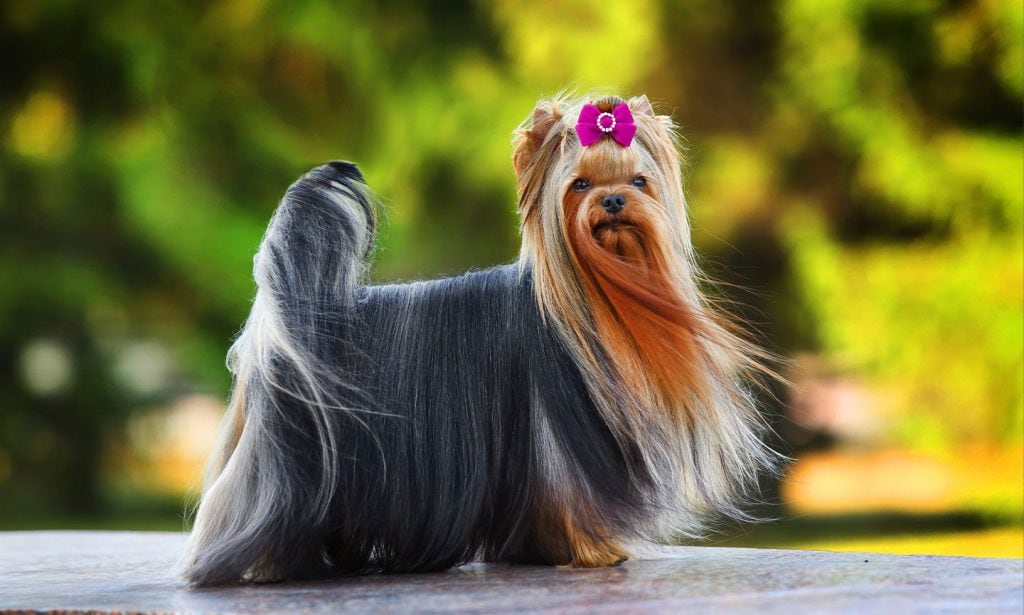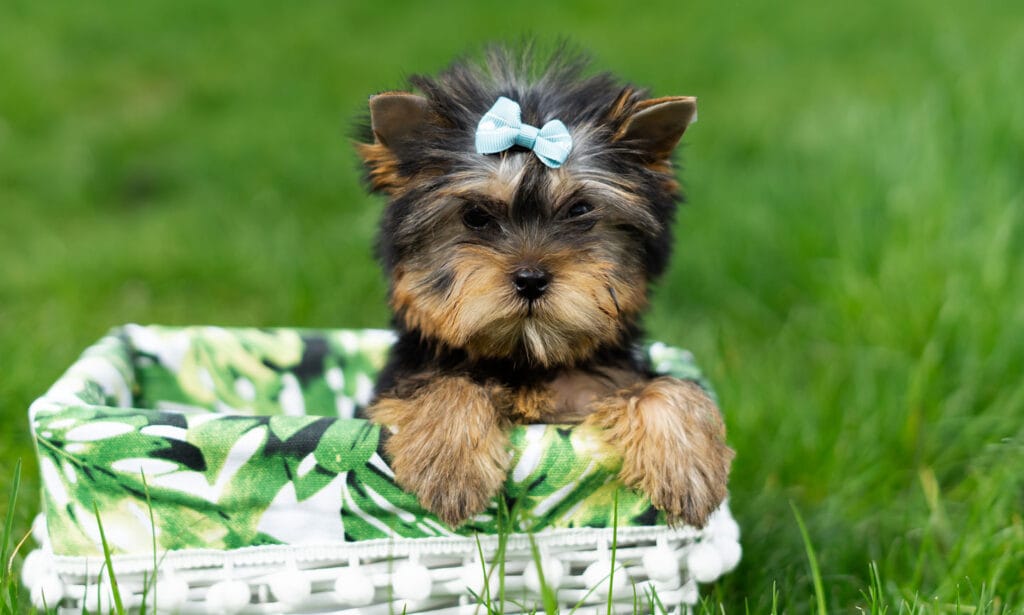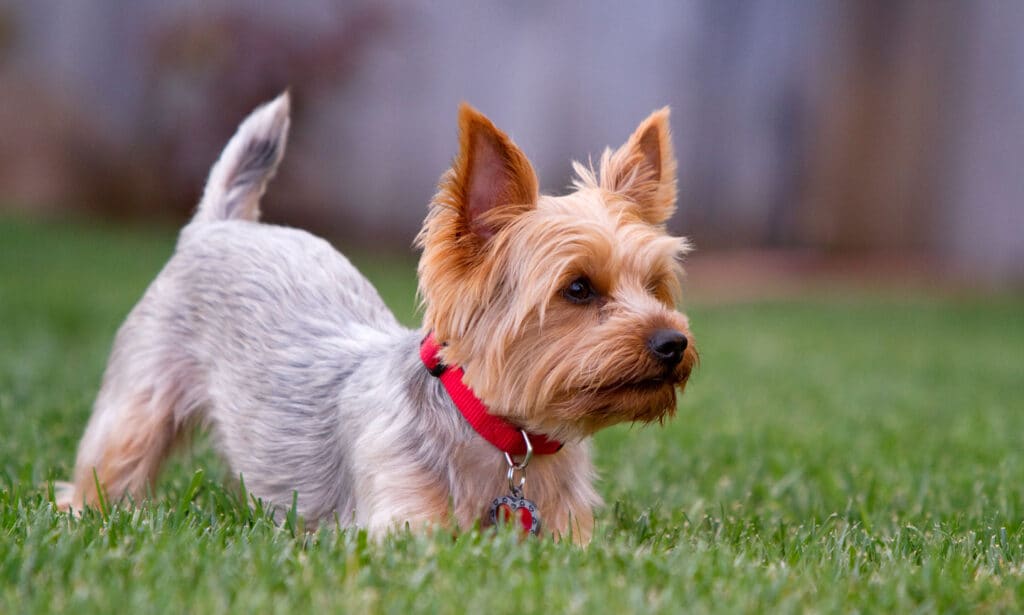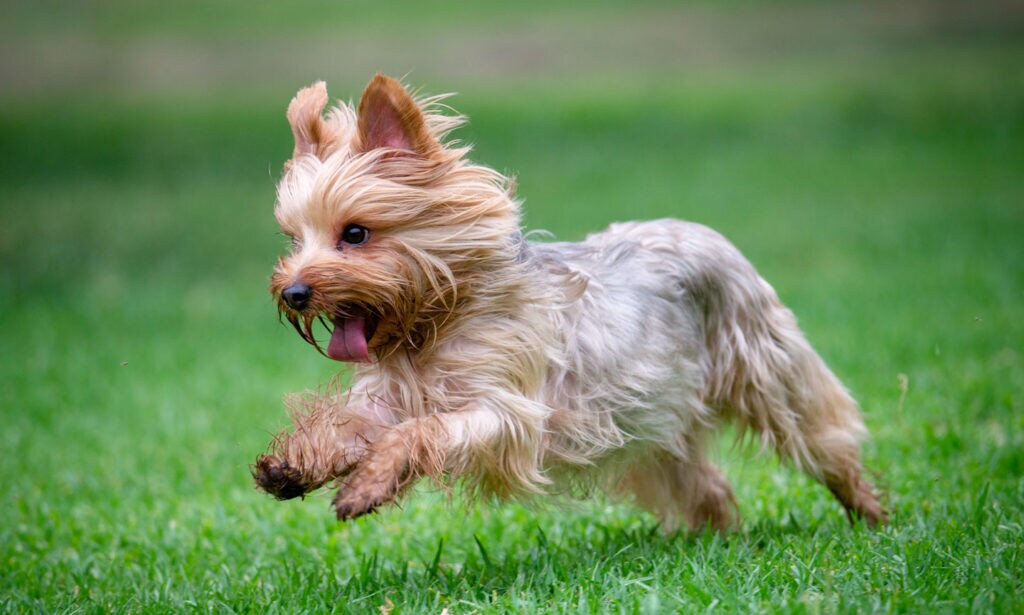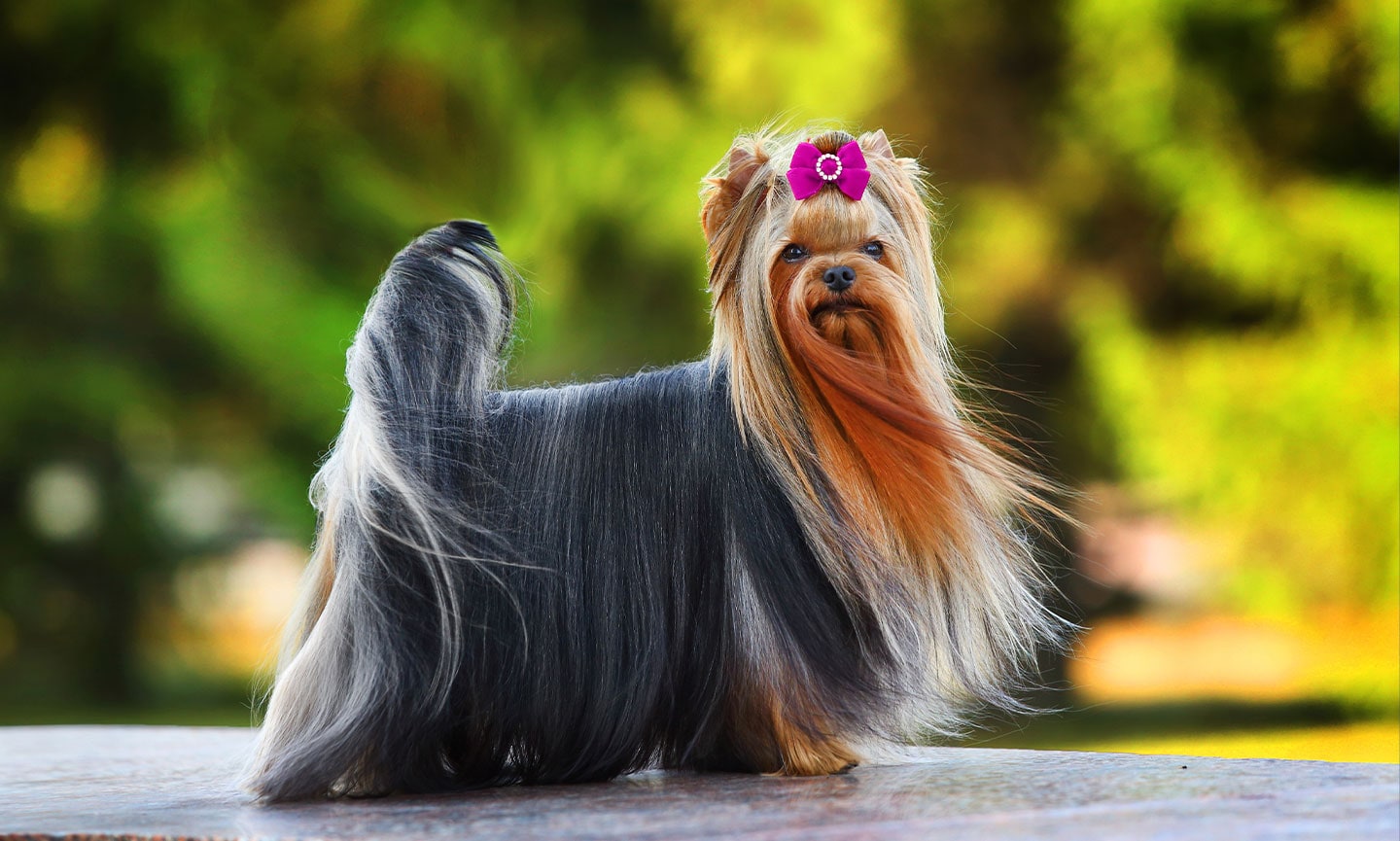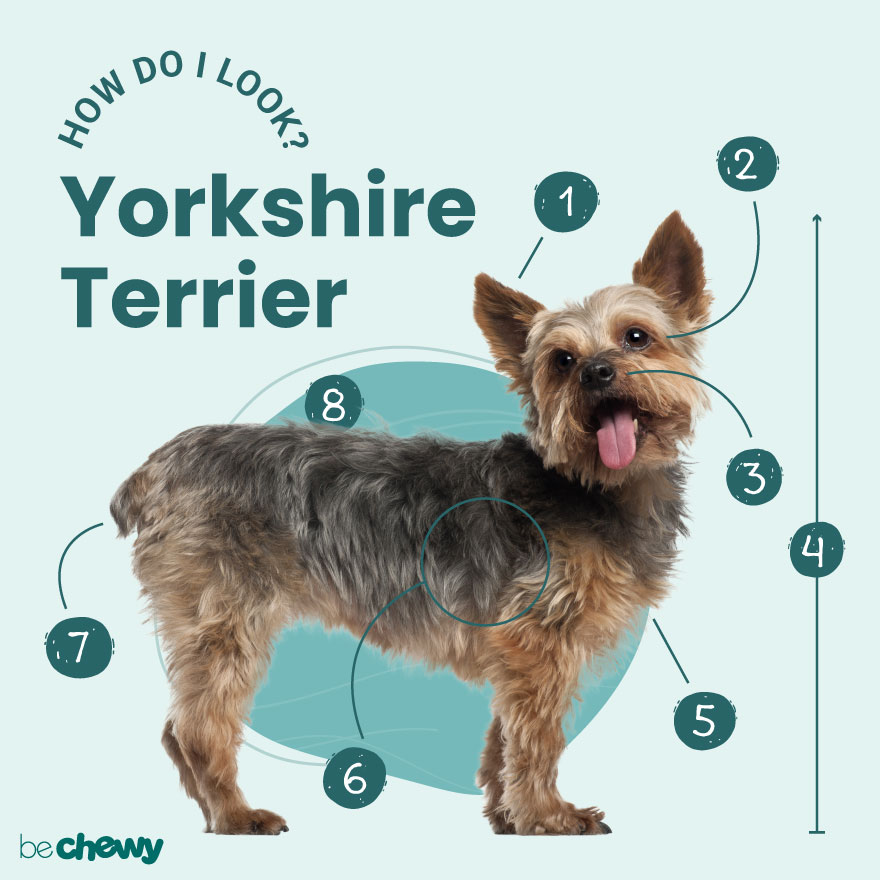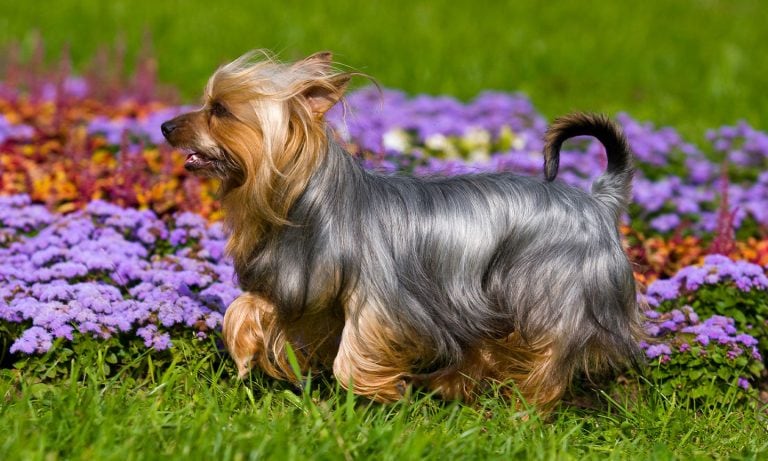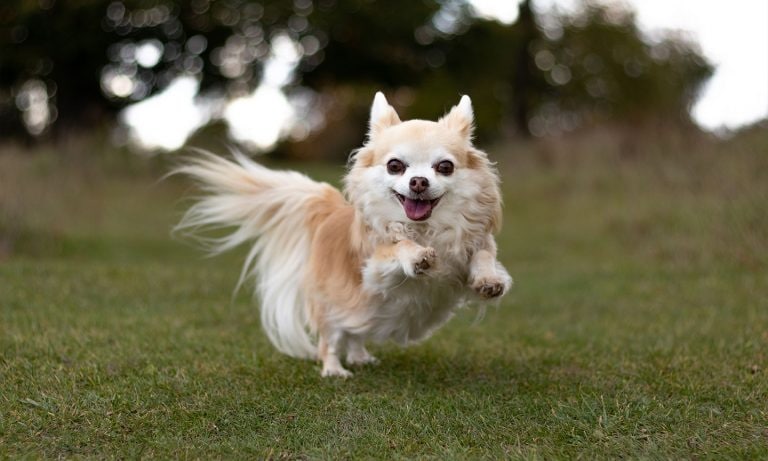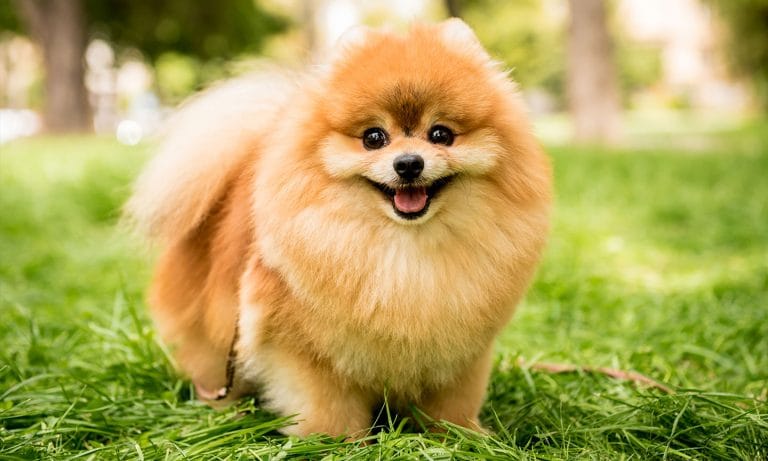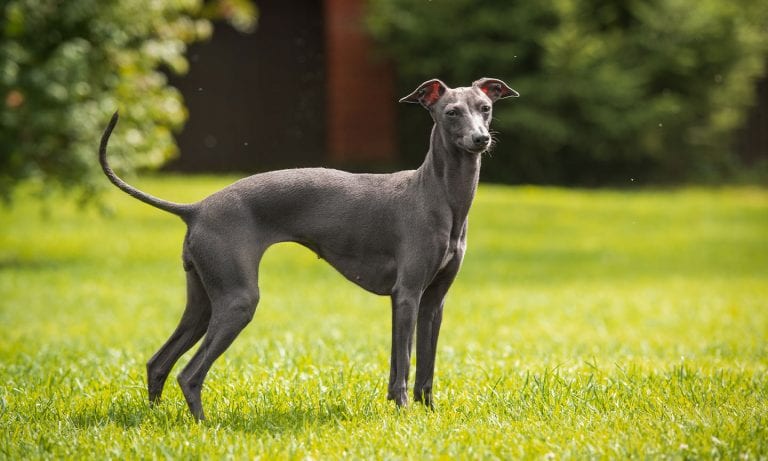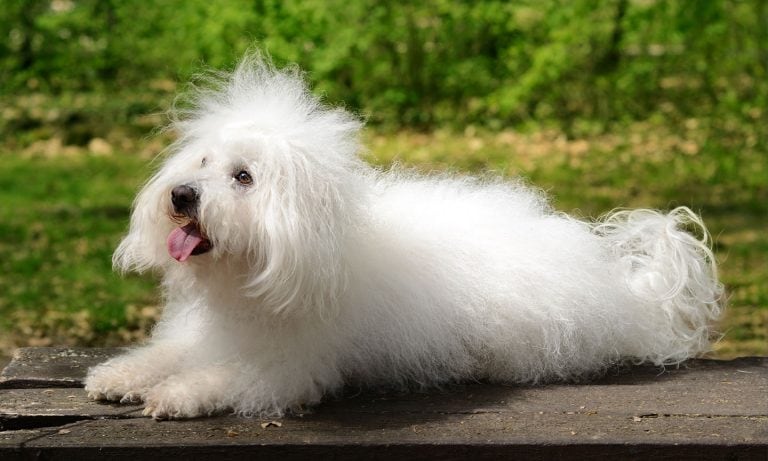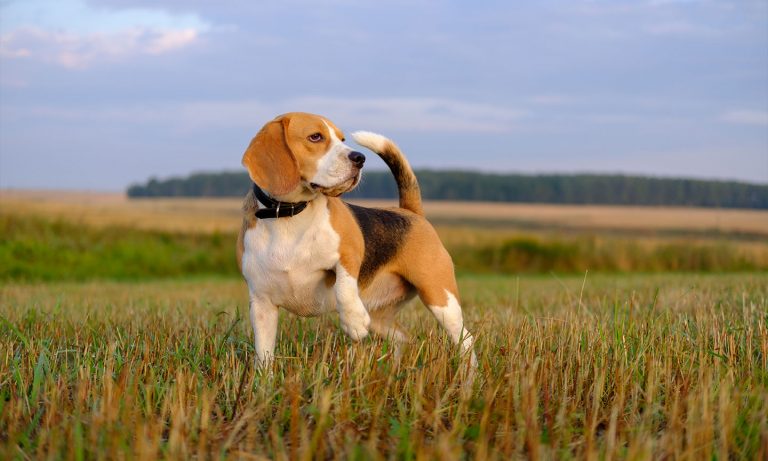Looking for a pet who looks just as glamorous as you do (aka very)? The long-tressed Yorkshire Terrier might be the dog for you. The Yorkie’s silky, human-like hair needs plenty of upkeep—we’re talking conditioners, detangling sprays, brushes and bows! But these smart cookies will pay you back in loyalty, cuddles, playfulness, a feisty attitude and, of course, almost unbearable cuteness. Live in a city? Even better. Yorkies are adaptable dogs who do well in apartments and are portable enough to tote on the subway. Just be prepared to turn heads wherever you go.
Breed Snapshot
Temperament:
CleverFeistyCuddlyCoat Color:
Black And GoldBlack And TanBlue And TanBlue And Gold
Best For
The Yorkshire Terrier, affectionately known as the Yorkie, is a small yet spirited toy breed cherished for their long, silky coat and confident demeanor. A popular companion dog, the Yorkie is intelligent, loyal and packs a lot of attitude in a lapdog body.
Yorkshire Terrier Temperament
Though small and cute with flowing locks, the Yorkshire Terrier is a smart, spunky dog who isn’t aware of their diminutive stature. Originally bred to hunt rodents before becoming popular as lapdogs, the Yorkie retains much of that tough terrier ‘tude (and bark) today. These confident pups might just take full command of the household if you let them, not-so-gently letting you know when it’s time to wake up, put the food out and go for a walk.
Fortunately, this smart breed is eager to please, making them a quick study when it comes to dog training. With early training and plenty of opportunities for social interactions with humans and canines from a young age, Yorkies can be a loyal, playful and friendly best bud. However, they aren’t great with young kids and babies—or, rather, young children aren’t great with them, especially those who like to play rough and haven’t been taught how to respect a dog’s boundaries. As with any dog, be sure to supervise encounters to ensure a safe and positive playtime.
Yorkshire Terriers don’t mind being handled and carried, so they’re some of the most portable pups around. But be careful not to coddle them too much. Yorkshire Terriers still need exercise and independence so that they don’t grow afraid to be out of your arms. In fact, because Yorkies bond so closely with their people, many Yorkie parents get two so they can keep each other company.
How to Care for a Yorkshire Terrier
Yorkshire Terriers may be small, but that doesn’t mean they need any less care than larger canines. Their hair alone requires lots of upkeep! Those silky tresses need plenty of brushing to keep from getting tangled and matted. You won’t have to plan long exercise sessions, so instead, use this time to focus on grooming, cuddling and training.
Yorkshire Terrier Health
Your Yorkshire Terrier will likely lead a perfectly healthy life with a generous lifespan of 11 to 15 years, but all dog breeds are at risk for certain health issues. Being aware of them may help you recognize any concerns—and get treatment—sooner.
- Collapsed Trachea: The Yorkie dog breed is prone to collapsed trachea, which is defined as a flattening or weakening of the trachea (windpipe) and can make it difficult for your dogs to breathe. Treat their neck carefully using a harness or a properly fitting collar (be sure two fingers fit snuggly between the collar and your dog’s neck) to protect the trachea. Depending on the severity, treatment for a collapsed trachea may include lifestyle changes, cough suppressants, anti-inflammatories and, in severe cases, surgery.
- Hypoglycemia: Yorkie and other toy breed puppies are at the highest risk before the age of 5 months for hypoglycemia. This condition causes a sudden drop in blood sugar which appears as drowsiness/lethargy, vomiting, rapid breathing, rapid heart rate, tremors and seizures. Call your vet ASAP if you notice any of these symptoms; depending on the severity, supplemental glucose, IV fluids and even a hospital stay might be needed.
- Periodontal Disease: The Yorkshire Terrier’s short nose, small mouth, crowded teeth and genetics predispose them to dental disease. Their teeth are often overcrowded, leaving plenty of nooks and crannies for plaque and bacterial growth, which can lead to dental and gum disease. Familiarizing your Yorkie with dental care at a young age is best. Make sure to brush your Yorkie’s teeth every day, check their gums regularly for swelling/redness and note any plaque on the teeth or even bad breath.
- Legg-Calve-Perthes Disease: A rare and likely genetic disease of the hip joint and connecting femur bone, Legg-Calve-Perthes usually develops in the first year, causing pain and limping. Serious cases may require surgery, and most Yorkies make a full recovery after treatment.
- Luxating Patella: This common issue in toy breeds occurs when the dog’s kneecap pops out of place, resulting in a limp. Your vet can screen for this issue with a standard patella evaluation. If patellar luxation occurs in your Yorkie, talk to your vet about whether surgery is needed to correct the problem.
- Progressive Retinal Atrophy (PRA): The Yorkshire Terrier breed is also genetically at risk for abnormal development of the retina, the light-sensitive tissue that lines the back of the eye. PRA can be seen in puppies (less common) or in adult dogs with a slow progression of the disease. Most dogs will be born with normal retinal tissue, and then slowly they will lose sight, very often first observed with difficultly seeing at night and leading to blindness. Management of the disease focuses on preventing injuries that come with vision decline, e.g. more lighting for your dog’s space (inside and outside), maintaining a regular furniture configuration in the home, using safety gates to prevent stair use and working on leash training. Yorkies with low to no vision can thrive, leading very normal happy lives.
Yorkshire Terrier History
Like the name suggests, the Yorkshire Terrier is a terrier who has their origin in—you guessed it—Yorkshire, England, in the mid-1800s. These dogs are likely descendants of the Scottish Terriers, brought to the area by Scots who came looking for jobs. Like most terriers, Yorkies were bred to hunt and kill small vermin. In their case, Yorkies were probably put to work in mines ratting out, well, rats. By the late 1800s, this working-class, soot-snouted little dog captured the attention of the posh Victorian ladies of the day, who cleaned them up and made them proper lapdogs.
The pups made their way to the US, and the American Kennel Club recognized the Yorkshire Terrier breed in 1885. During World War II, Smoky, a Yorkie found by an American solider in New Guinea, accompanied US troops on their missions in the South Pacific and was credited with 12 combat missions and awarded eight battle stars.
The Yorkshire Terrier Club of America was founded in 1951. Today, they remain a popular family pet.
Are you looking to get a Yorkie as a pet? You can find responsible breeders at the AKC’s website. A Yorkshire Terrier puppy can cost anywhere from $1,500 to $3,000. For this price, you’re typically getting a dog who’s been screened for health and temperamental concerns and may even come with papers.
You can also reach out to a Yorkshire Terrier rescue organization to adopt a Yorkie, keep an eye out for the breed at your local animal shelter, or search Chewy’s database of adoptable dogs in your area.
Pro tip: If you’re looking for a Yorkie with white in their fur, you may be looking for a Biewer Terrier, a close cousin to the Yorkshire Terrier. Also, some unscrupulous breeders may advertise “teacup” or “tiny toy” or “extreme tiny” Yorkies, which are dangerously bred to weigh less than three or four pounds. Yorkies are already a Toy breed, and these other names are simply a marketing ploy.
FAQs
Are Yorkies hypoallergenic?
Yes, the Yorkie is considered hypoallergenic. While no dog is 100-percent hypoallergenic, the Yorkshire Terrier is a low-shedding pup and is a great choice for potential pet parents with allergies.
Do Yorkshire Terriers bark a lot?
Yorkshire Terriers rate high on the barking scale so you might need to consider some training to curb this trait before it becomes a nuisance.
How big do Yorkshire Terriers get?
Yorkshire Terriers are extra-small, coming in at 7 to 8 inches at the shoulder and weighing about 7 pounds.
What are the most common Yorkie mixes?
- Yorkie-Chihuahua mix (Chorkie)
- Yorkie-Jack Russell Terrier mix
- Yorkie-Poodle mix (Yorkipoo)
- Yorkie-Miniature Schnauzer mix
- Yorkie-Dachshund mix
- Yorkie-Shih Tzu mix (Shorkie)
Note: These are not purebred dogs but mixed breeds.
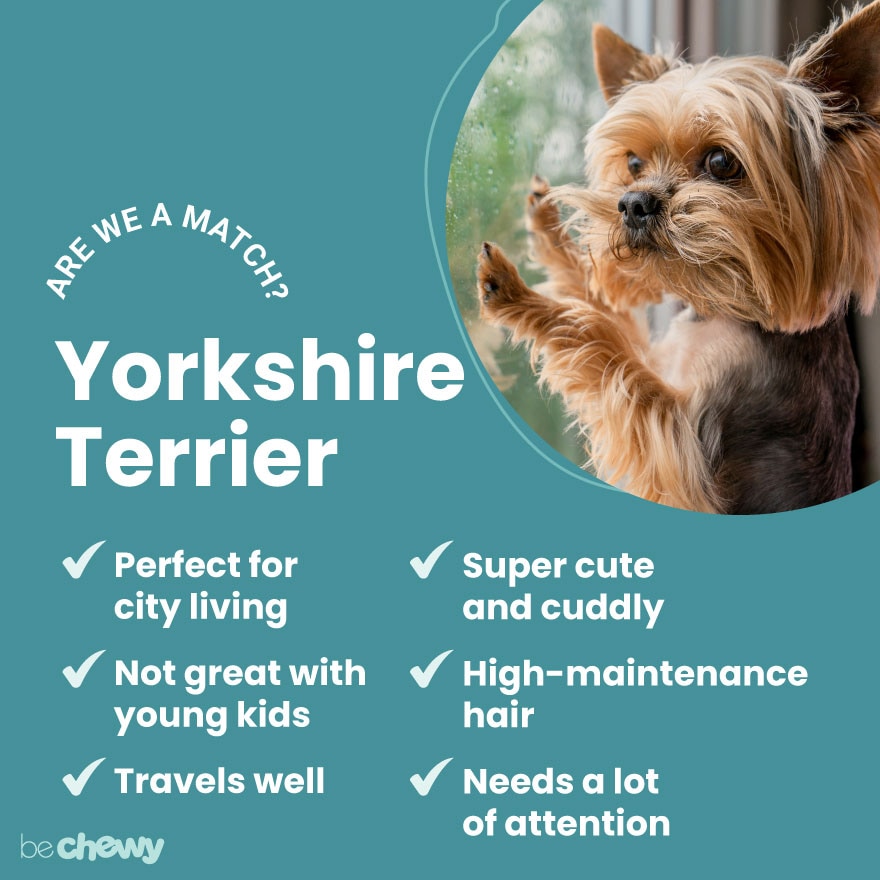
Top Takeaways
Yes, Yorkshire Terriers are traditionally “lap” dogs and yes, they do have fancy-shmancy hair. But these teddy-bear pups are much more than that: Yorkies are energetic, brave, playful and demanding your attention. Treat them like a doll at your own risk. While they’re easy to pick up, Yorkies can learn to be nervous and aggressive if they’re always carried and protected. But with a healthy mix of mild exercise and independence, Yorkies will calmly and confidently stay by your side for life—and will likely always have better hair than you.
Expert input provided by Jennifer Coates, DVM, a veterinarian in Fort Collins, Colo., and Elizabeth H. “Kizz” Robinson, CDBC, CPDT-KA of 2B Dog Training in Brooklyn, N.Y.
Breed characteristic ratings provided by Dr. Sarah J. Wooten, DVM, CVJ, a veterinarian at Sheep Draw Veterinary Hospital in Greeley, Colorado; dog trainer and behavior consultant Irith Bloom, CPDT-KSA, CBCC-KA, CDBC, owner of The Sophisticated Dog, LLC, in Los Angeles; and certified animal behavior consultant Amy Shojai, CABC, in Sherman, Texas.
The health content was medically reviewed by Chewy vets.

Search for Adoptable Yorkshire Terriers Near You
Top Yorkshire Terrier Names
These are the top Yorkshire Terrier names as chosen by Chewy's pet parents!
Female Names
- Bella
- Luna
- Coco
- Daisy
- Chloe
- Mia
- Lola
- Lucy
- Zoey
- Sophie
Male Names
- Milo
- Teddy
- Max
- Bentley
- Charlie
- Cooper
- Toby
- Oliver
- Gizmo
- Rocky
Share:
